About a month ago I was in the market for a new phone. My Droid 2 was at the end of its useful life, and I was ready for a new smartphone. There was a lot of debate between my friends over what would be better, and it came of shock to no one that I chose the Galaxy Nexus.
The Screen
The number one feature of the Galaxy Nexus wasn’t the 4G network; although that is a plus, the screen is what truly won me over.
I say this knowing that the Nexus has a pentile screen. I, quite frankly can’t see what the difference is. I don’t view it closely enough to see the pixels, and the color seems fine to me. I don’t see jaggies and I, unlike Sarah, don’t mind its size. From a normal viewing angle, it’s beautiful. I have to fight myself to keep the brightness down so I can actually get some decent battery life, as it really looks great with the brightness cranked up to max.
Somewhat Openness
This is a Nexus phone, so it should be open and it generally is. I can easily unlock the bootloader and put a custom rom on the device if I wish. However, I say it is somewhat open because while Google does provide the updates for the Galaxy Nexus on Verizon, Verizon has to approve the updates before it becomes an official update. I will get into this in another post, but if you have a stock Galaxy Nexus on Verizon, you have only received the one update to 4.0.2 which was on the launch day back in December 2011.
Ice Cream Sandwich: A Tasty Treat More People Should Get
I like, no, I LOVE Ice Cream Sandwich, or Android 4.0 in case you don’t like tasty treats. The interface Google has provided is great. I find it very fast, smooth and easy to find nearly anything with a minimum of pecking around. The new multitasking features of the interface are far superior to anything that Android has had to date. The updates to the base applications are great as well. I will never go back to anything pre Android 4 again.
My only problem with Android 4 is Google, and their partners aren’t shipping more devices with Android 4.0. Android 4.0 has been out for over 6 months, and there are still very few devices that have it. When someone like Samsung does ship a device with Android 4.0, like the upcoming Samsung Galaxy S III, they skin it so much with that awful Touchwiz (or Blur for Moto or Sense with HTC) that it’s unrecognizable as an Android 4.0 device. I am so glad I went with the Nexus, because it comes with the stock interface, as all Android devices should.
MINIMUM of Bloat
Out of the box, there were only two apps that were not stock Android 4 apps. One of them was VZ Navigator, and it was removable. The other app was VZ Backup Assistant which you cannot remove, and I honestly don’t know why Verizon feels the need to ship it on an Android device; Android devices ALREADY backup to Google. The only reason I can see for it is if you don’t want to use Gmail with it, but honestly if you don’t use Gmail or the other Google apps with Android, then you are totally missing out on truly a wonderful experience.
I’ve NEVER lost a contact since I went Android and Google Calendar is great. I can’t imagine using a phone without these services. Some may have reservations about Google, but I do not. Google may have a lot of my data, but they have yet to do anything that has caused me concern. Even so, I won’t put certain things in the Google cloud, but my schedule isn’t of earth shattering importance to anyone but me.
Is it bug free?
Hardly! Verizon Nexus owners are increasingly getting desperate for an update. While I have been able to deal with the issues, some haven’t and have moved on to other devices. The main issue I currently have is that I get occasional dropouts on 4G. Some days it’s really, really good, and I get things done with a minimum of fuss. Other days it’s bad with the data completely dropping multiple times in an hour. So far the only thing I have heard from Verizon is a firmware update is supposed to fix the issue.
I have been able to deal with it by putting the Nexus in 3G mode when I am not using it heavily, and that has been sufficient. My connectivity while on 3G has been great with no loss of service. Most times when I drop to 3G, I can still do what I need to do. However, this does not exonerate Verizon from the laughable support they have provided Nexus owners. I understand that Verizon needs to test the software, but they need to do a much better job at not only testing it but releasing fixes. It’s obvious, to me, that they aren’t willing to give up control even on a Nexus device. What I simply don’t get is that Verizon is willing to do it with the iPhone, and they have nary an issue reported from my wife or anyone else I know with an iPhone on Verizon. Some of this is because the open nature of Android gives them that control. However, they don’t realize that same openness allows Android owners to do what they please on their device making their desire to control the experience moot. They would do better leaving the OS entirely and completely too Google. I know they can’t entirely do this because of the closed nature of the CDMA and LTE hardware needed for their network, so I can give them a small pass, but they need to beef up their testing and complete it faster than they currently are doing now. At the rate they are going, 4.0.5 will be hitting the GSM Nexus before 4.0.4 officially hits the Verizon device, and that is inexcusable.
Am I happy?
Generally, I am pretty happy with my choice. Most of my issues aren’t necessarily with Android. The only people who care about the fragmentation issues are geeks, and this geek doesn’t even care. I find it’s mostly brought up by those who are used to the Apple experience, and they are expecting Android to provide a similar experience; that’s something that will never happen and I am glad. Why, you ask? Well, Android’s openness can help manufacturers differentiate themselves while still remaining plugged into the Android ecosystem. The openness of Android allows devices like the Razr Maxx, Droid 4, Samsung Galaxy S III and the various tablets like the Kindle Fire, EeePad Transformer Prime and more. If Android were more tightly controlled, then you would not have the choice of a device with an integrated keyboard or tablets with keyboard docks. Every device would be 99 percent the same, making it difficult for Motorola, Samsung, HTC and LG to differentiate themselves.
Would I recommend the Galaxy Nexus?
I would say that depends. If you want a smoother Android experience, then I would actually recommend the Razr Maxx over the Nexus at this point. While the Maxx is still on Gingerbread, its 4.0 update is supposed to happen very soon; you will not have to live with the old version for that long. Plus the Maxx has better battery life than the Nexus, by far.
If you are a person who likes to root your device, then I say by all means grab a Galaxy Nexus. Even the Verizon version is a lot of fun to play around with, and it is an excellent phone. Just know that if you are reliant upon Verizon updates, then you may be waiting a long time between updates — if you get any at all.

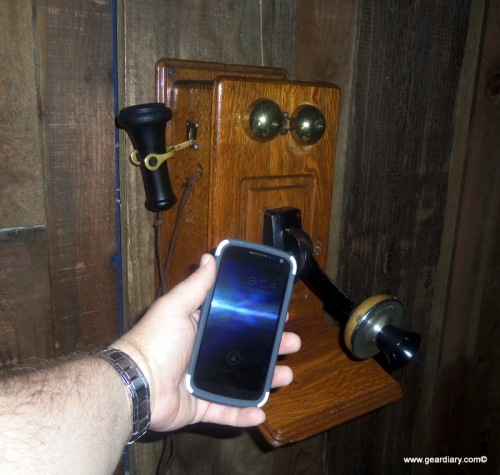
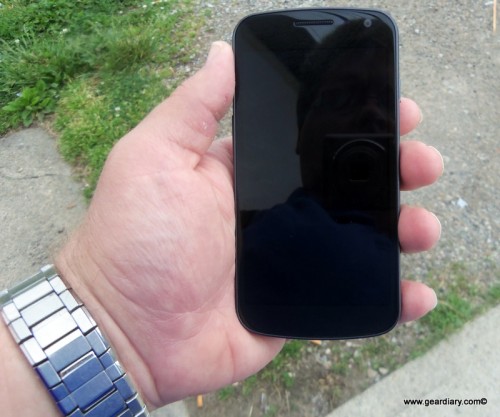
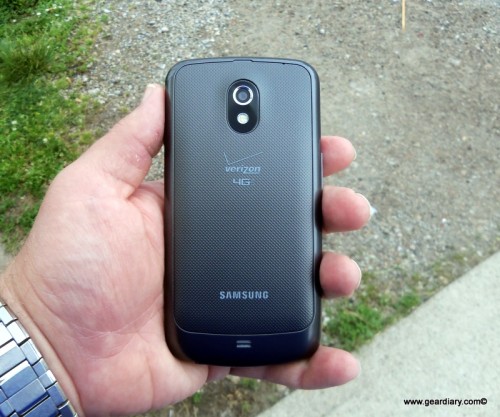

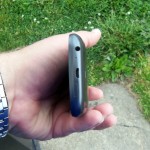

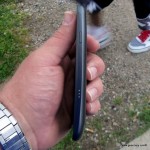
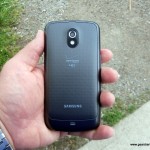
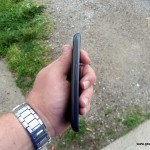


Very nice review! A few things:
– I believe that VZW puts the Backup Assistant on because many people coming from feature phones already have contacts in Backup Assistant online from those phones, and putting the app on Android phones makes it easier for their techs to get the user’s contacts to Android when they are new to the platform when upgrading from feature phones.
– the LTE/CDMA dropouts continue to plague some Bionic users, so don’t be surprised if a firmware update does not completely resolve those issues.
– Sense 4.0 on the new HTC One series looks very light and an acceptable alternative to stock Android. The truth is that stock Android launchers are not always efficient and there are plenty of G1, OG Droid, Nexus One, Nexus S and Galaxy Nexus users who switched to alternative launchers as soon as they were available. While I agree that it would ne nice if stock launchers shipped with the skinned phones, the manufacturers clearly think that it’s easier to get a Galaxy SII user (say) to upgrade to a Galaxy SIII than to anything else if the Touchwiz look and feel remains the same. For geeks like us, I disagree; but for the majority of Android users who are not as technical as us, I am not so sure that this isn’t such a terrible idea.
– If I was a Maxx user, I’m not sure that I would hold my breath waiting for an ICS update. Motorola still lists the phone as under “Evaluation and planning” for ICS, the same as the Verizon Droid Bionic, Droid Razr, Droid 4 – and Droid 3, Droid X2, Droid X … meanwhile, they have planned dates for the non-US Razrs, and some US phones (Atrix 2, Photon.) It surely appears that Motorola has little confidence in how long it takes Verizon to approve updates.
I wouldn’t be so quick to blow off the problem of fragmentation. I find that most of the people who care about fragmentation are NOT geeks or Apple folks, as you suggest, but rather app developers and people whose apps aren’t working once they switched devices. Fragmentation is a problem and it looks like Google is going to help reduce it if they go forward with their device plans. Fragmentation, remember, isn’t just about version number differences, but other fundamental issues and variations in devices that prevent apps from runing correctly or consistently.